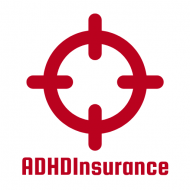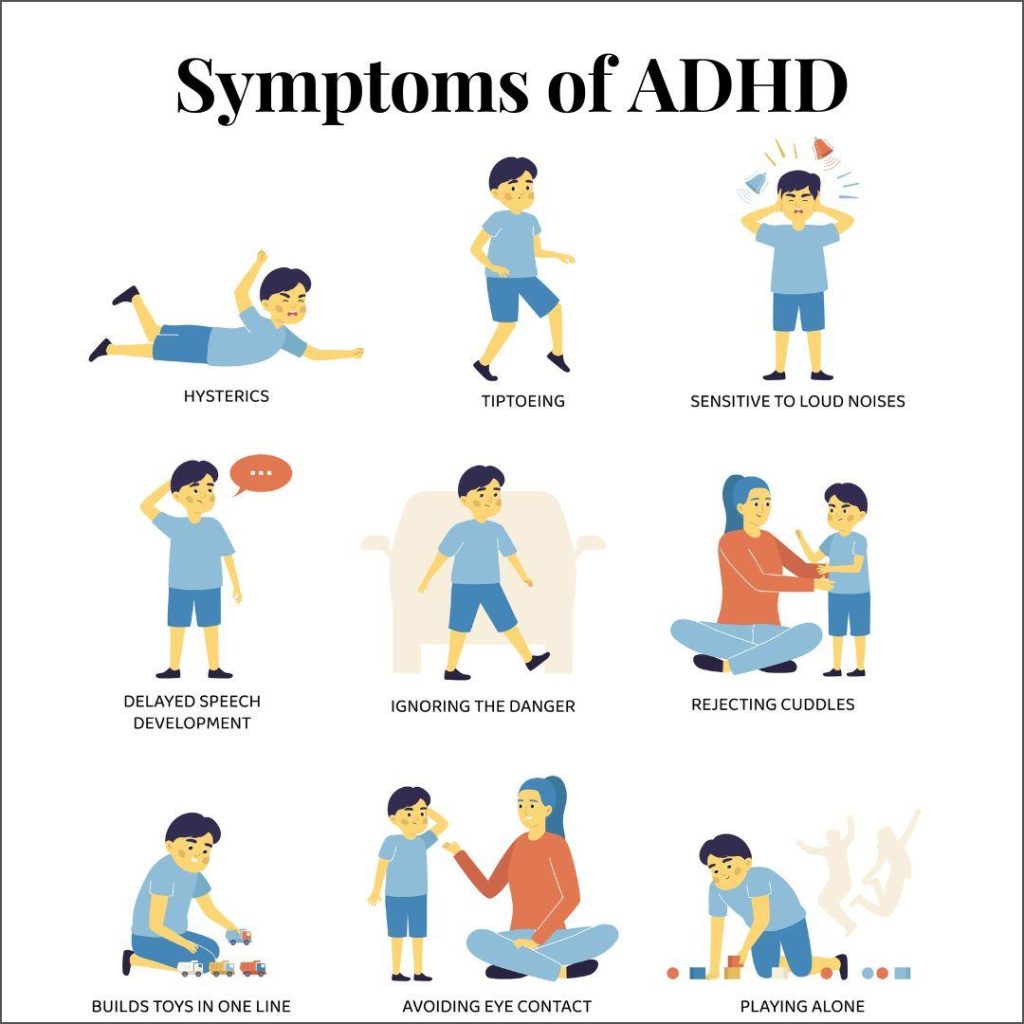ADHD Disability Status and Insurance Coverage
In today’s fast-paced world, awareness of mental health conditions has grown immensely, yet understanding the intricacies of disorders like Attention-Deficit/Hyperactivity Disorder (ADHD) remains a complex tapestry. ADHD, often characterized by challenges in maintaining attention, executive function, and self-regulation, affects millions of individuals across various age groups. But beyond its symptoms, the implications of this condition stretch into vital areas such as disability status and insurance coverage. As debates continue over what constitutes a disability and how it affects one’s eligibility for support, it becomes crucial to delve into the intricacies of ADHD in the context of legal and healthcare frameworks. This article aims to demystify the intersection of ADHD, disability recognition, and insurance provisions, providing clarity for individuals navigating these often murky waters. Whether you are a person with ADHD, a caregiver, or simply an interested observer, understanding these dynamics is essential in fostering a comprehensive societal approach to support and inclusion.
Determining the disability classification for ADHD can be a nuanced journey, involving a multitude of factors that vary widely from one individual to another. The criteria set forth by the Americans with Disabilities Act (ADA) are often utilized to evaluate whether ADHD substantially limits an individual’s major life activities. As a result, some key considerations include:
- Severity of Symptoms: The impact of ADHD symptoms on daily life, such as academic performance or social interactions.
- Duration: How long the symptoms have persisted and whether they are expected to be long-term.
- Medical Documentation: The importance of thorough assessments and diagnoses from qualified healthcare professionals.
Once classified as a disability, individuals may encounter varying levels of coverage and support from insurance providers. Here’s a brief overview of common types of insurance coverage related to ADHD:
| Type of Coverage | Description |
|---|---|
| Health Insurance | Covers ADHD assessments, therapy, and medication. |
| Special Education Services | Provides tailored educational support for students with ADHD. |
| Vocational Rehabilitation | Assists with job training and placement for adults with ADHD. |
Decoding Insurance Policies: What You Need to Know for ADHD Coverage
Understanding the intricacies of online ADHD coverage can feel overwhelming, yet breaking down the essential components makes navigating insurance policies less daunting. First, it’s crucial to identify whether your policy explicitly includes coverage for ADHD-related treatments. Many insurance providers categorize ADHD as a mental health condition, which opens up avenues for coverage of therapies, medications, and certain specialists. Look out for key terms that may indicate coverage, such as “behavioral therapy,” “psychological evaluation,” and “medication management.” Always check to see if there are specific exclusions that might apply to ADHD treatments within your plan.
Another significant aspect of ADHD coverage involves understanding the potential requirement for prior authorization. Some insurance companies may mandate it for certain services, which entails obtaining approval before receiving specific treatments or assessments. If any prior authorization is necessary, ensure you gather all pertinent documentation, including diagnoses from healthcare providers and treatment history. It can also be beneficial to familiarize yourself with your rights as a policyholder, especially in regard to appeals if coverage is initially denied. Here’s a simple table that highlights common aspects to look for:
| Coverage Aspect | Description |
|---|---|
| Therapies | Cognitive-behavioral therapy and other modalities may be covered. |
| Medications | Check for coverage of ADHD medications like stimulants. |
| Diagnostic Assessments | Ensure evaluations conducted by qualified professionals are covered. |
| Prior Authorizations | Some services might require a pre-approval process. |
The Importance of Documentation: Ensuring Proper Support and Benefits
In the complex landscape of ADHD management, maintaining thorough documentation is paramount for individuals seeking to secure support and benefits. This process involves meticulous record-keeping that encompasses medical evaluations, psychological assessments, and personal statements detailing the impact of ADHD on daily functioning. By organizing and presenting this information cohesively, individuals can effectively communicate the necessity for accommodations in both educational settings and workplaces. This proactive approach not only supports claims for disability status but also reinforces eligibility for various insurance benefits.
Proper documentation serves as the backbone of any successful appeal or claim. Key elements to include are:
- Diagnosis confirmation: Official diagnoses from qualified professionals.
- Treatment history: Detailed records of therapies and medications prescribed.
- Functional limitations: Clear examples showing how ADHD affects daily life and job performance.
By following these guidelines, individuals with ADHD can navigate the often challenging terrain of disability status and insurance coverage. The goal is to create a compelling case that highlights the need for appropriate support, which, in turn, ensures access to essential resources that facilitate a better quality of life.
Strategies for Advocating for Your Rights in ADHD Insurance Claims
Successfully advocating for your rights in ADHD insurance claims often requires a combination of knowledge and assertiveness. Start by gathering comprehensive documentation regarding your condition. This can include:
- Medical Records: Secure up-to-date records from healthcare providers that outline your diagnosis and treatment plans.
- Expert Opinions: Obtain letters from specialists in ADHD that clarify how the disorder impacts your daily functioning.
- Personal Statements: Write down how ADHD affects your life; personal accounts can provide valuable context to your claims.
Understanding your insurance policy is equally crucial. Familiarize yourself with the specific language in your plan regarding coverage for ADHD-related treatments and therapies. There are certain tactics you can employ during the claims process, such as:
- Filing Thoroughly: Ensure that every component of your claim is complete and accurate to avoid unnecessary delays.
- Requesting Clarifications: Don’t hesitate to ask your insurance provider for clear explanations of denials or coverage terms.
- Using Advocacy Resources: Connect with ADHD support groups or legal experts specialized in disability claims to bolster your advocacy efforts.
Q&A
Understanding ADHD: Disability Status and Insurance Coverage – Q&A
Q1: What is ADHD and how does it impact daily life?
A1: Attention-Deficit/Hyperactivity Disorder (ADHD) is a neurodevelopmental disorder characterized by symptoms of inattention, hyperactivity, and impulsivity. These symptoms can significantly affect various aspects of daily life, including academic performance, work productivity, and social relationships. Individuals with ADHD may find it challenging to focus in class, meet deadlines at work, or maintain consistent interactions with friends and family.
Q2: Is ADHD classified as a disability?
A2: ADHD can be classified as a disability under certain conditions. The definition of disability varies by context, but in many legal frameworks, including the Americans with Disabilities Act (ADA), ADHD may qualify if it substantially limits one or more major life activities. However, whether an individual is recognized as having a disability can depend on the severity of their symptoms and how they impact daily living.
Q3: How can ADHD status affect insurance coverage?
A3: Insurance coverage for ADHD can vary widely. Many health plans will cover diagnostic assessments and treatment options for ADHD, including therapy and medication. However, coverage can depend on the specific policy, the healthcare provider’s credentials, and whether ADHD is recognized as a qualifying condition. It’s essential to check with your insurer to understand the specifics of what’s covered and any potential limitations.
Q4: What types of treatments are typically covered by insurance for ADHD?
A4: Insurance plans often cover a variety of treatments for ADHD. This may include behavioral therapy, psychoeducation, counseling, and medication management using stimulants or non-stimulant medications. Some plans may also cover therapy for co-occurring conditions such as anxiety or depression, which are common in individuals with ADHD.
Q5: How can someone with ADHD apply for disability benefits?
A5: Applying for disability benefits with ADHD involves demonstrating that the condition severely impacts daily living. Individuals typically need to provide medical documentation, including diagnoses from healthcare professionals, treatment history, and evidence of how ADHD limits major life activities. The application process can vary by jurisdiction, so it’s advisable to consult with local disability services or legal professionals familiar with disability claims.
Q6: Are there specific accommodations available for individuals with ADHD?
A6: Yes, there are various accommodations that can help individuals with ADHD in educational and workplace settings. These might include extended time on tests, flexible work hours, access to organizational tools, and a quiet workspace to minimize distractions. It’s important for individuals to communicate their needs and work collaboratively with employers or educational institutions to implement these accommodations.
Q7: Can ADHD be treated effectively, and does treatment impact disability status?
A7: Yes, ADHD can often be effectively managed with a combination of behavioral therapies and medication. Successful treatment can lead to improved functioning in daily life, which may affect an individual’s disability status. If symptoms are controlled and do not significantly impair major life activities, a person may not qualify as disabled under certain legal definitions, even if they have a diagnosis of ADHD.
Q8: What resources are available to support individuals with ADHD in navigating insurance and disability issues?
A8: Various resources are available for individuals with ADHD, including support groups, advocacy organizations, and educational programs. Organizations such as CHADD (Children and Adults with Attention-Deficit/Hyperactivity Disorder) offer resources on managing ADHD, understanding insurance options, and navigating disability claims. Consulting with a mental health professional experienced in ADHD can also provide valuable guidance tailored to individual circumstances. Conclusion: Understanding ADHD and its implications for disability and insurance is crucial for those affected and their families. By navigating these complexities thoughtfully and utilizing available resources, individuals can access needed care and support.
Insights and Conclusions
navigating the complex landscape of ADHD can be both challenging and enlightening. As we’ve explored, the intersection of disability status and insurance coverage is critical for those affected by this condition. Understanding how ADHD is classified, the benefits available, and the rights afforded to individuals can empower families and individuals to advocate for the support they need. As awareness grows and attitudes evolve, it is imperative that we continue to foster an environment that recognizes ADHD not just as a collection of symptoms, but as a distinct and legitimate experience that warrants understanding and care. With informed insights and accessible resources, we can pave the way for a future where ADHD is effectively managed, and support is readily available, ensuring that every individual has the opportunity to thrive.
Dr. Jonathon Preston is a respected mental health specialist dedicated to helping individuals overcome challenges. With advanced training in psychology and decades of experience in the mental health field.

